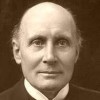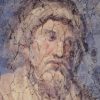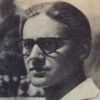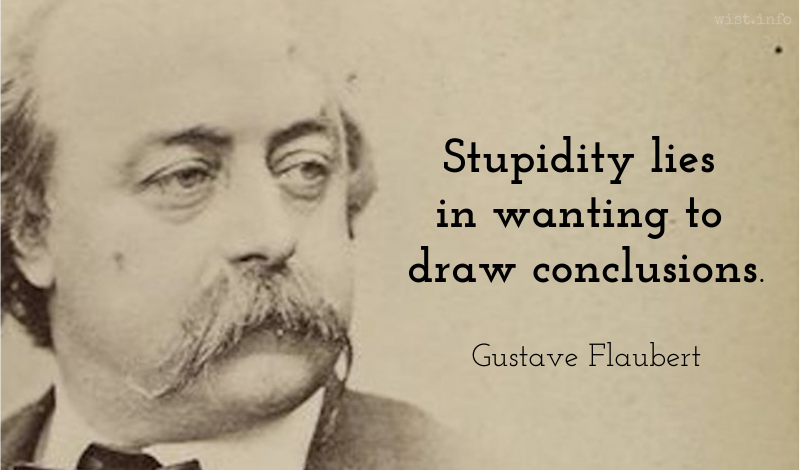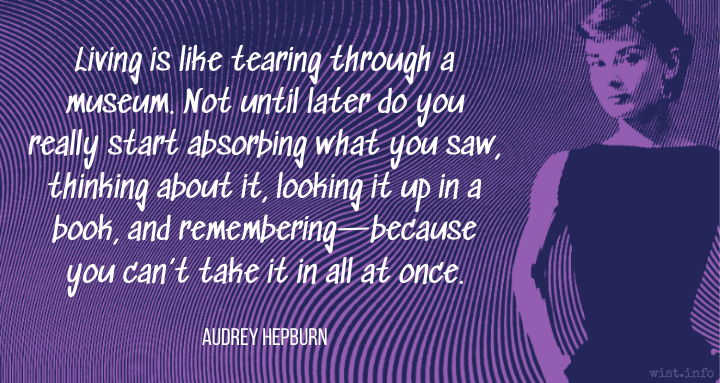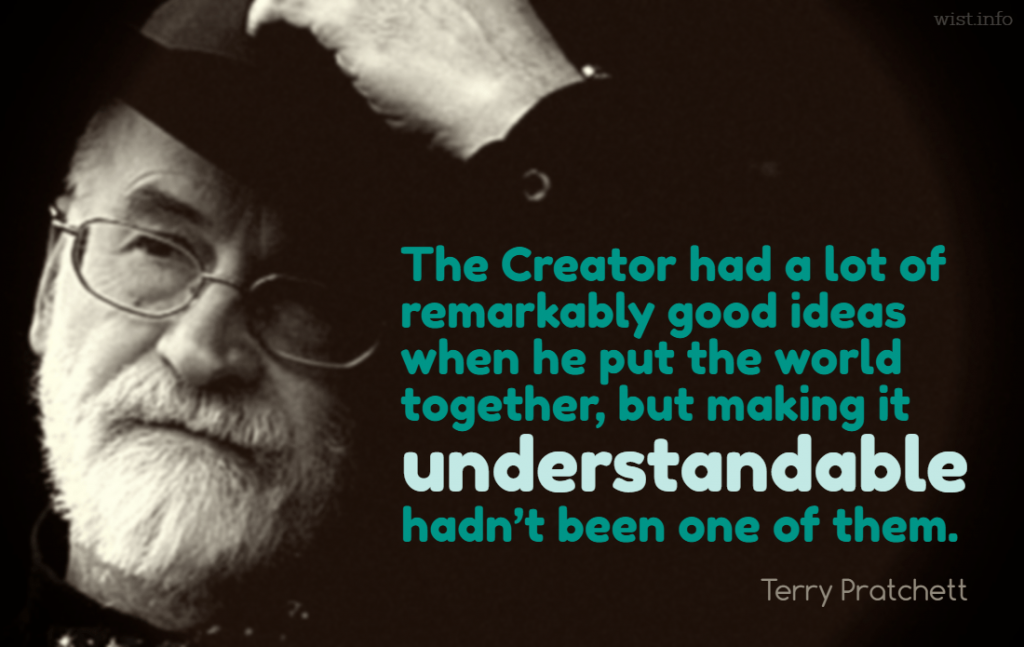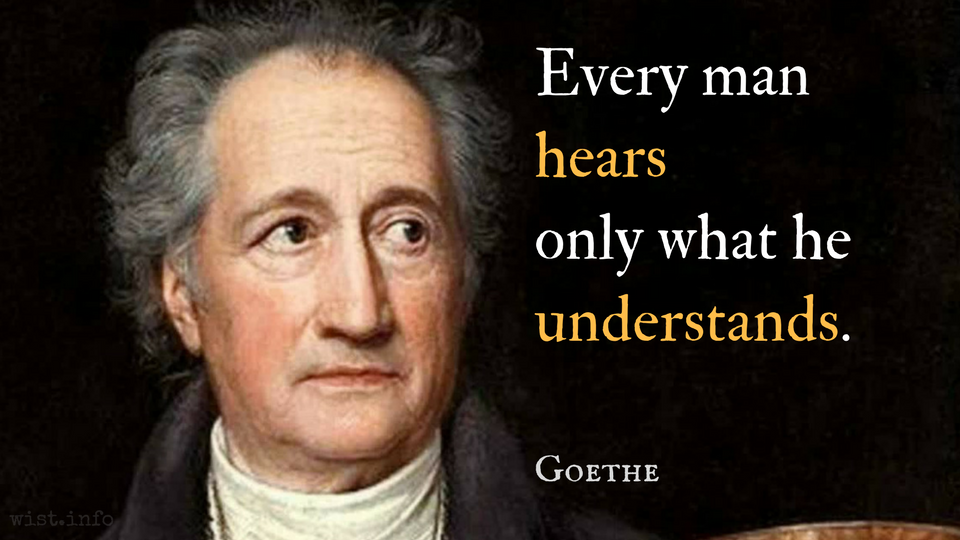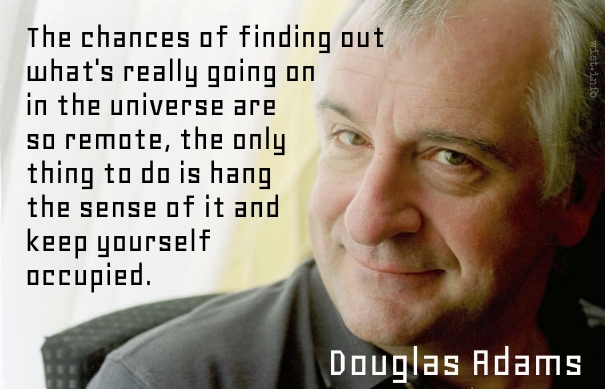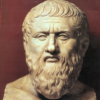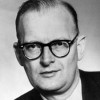How shallow, puny, and imperfect are efforts to sound the depths in the nature of things. In philosophical discussion, the merest hint of dogmatic certainty as to finality of statement is an exhibition of folly.
Alfred North Whitehead (1861-1947) English mathematician and philosopher
Process and Reality: An Essay in Cosmology, Preface (1929)
(Source)
The book is a collection of his Gifford Lectures, University of Edinburgh (1927-1928).
Quotations about:
comprehension
Note not all quotations have been tagged, so Search may find additional quotes on this topic.
That is not good language which all understand not.
George Herbert (1593-1633) Welsh priest, orator, poet.
Jacula Prudentum, or Outlandish Proverbs, Sentences, &c. (compiler), # 302 (1640 ed.)
(Source)
Within that heav’n which most receives His light
Was I, and saw such things as man nor knows
Nor skills to tell, returning from that height;
For when our intellect is drawing close
To its desire, its paths are so profound
That memory cannot follow where it goes.
Yet now, of that blest realm, whate’er is found
Here in my mind still treasured and possessed
Must set the strain for all my song to sound.
[Nel ciel che più de la sua luce prende
fu’ io, e vidi cose che ridire
né sa né può chi di là sù discende;
perché appressando sé al suo disire,
nostro intelletto si profonda tanto,
che dietro la memoria non può ire.
Veramente quant’io del regno santo
ne la mia mente potei far tesoro,
sarà ora materia del mio canto.]Dante Alighieri (1265-1321) Italian poet
The Divine Comedy [Divina Commedia], Book 3 “Paradiso,” Canto 1, l. 4ff (1.4-12) (1320) [tr. Sayers/Reynolds (1962)]
(Source)
Dante breaks the fourth wall again, to apologize for how little he can remember of the ineffable glories of Heaven (which works out to an entire book's worth).
(Source (Italian)). Alternate translations:
In daring drains
I sing, admitted to the lofty fanes,
Fill'd with the Glory of th' Eternal One.
There saw I things beyond Creation's bourne.
Which none who from her flaming bounds return
Can tell, when soaring Thought is launch'd so far
In Being's vast Abyss, that Mem'ry fails.
Nor dares pursue, altho' with crowded sails
She tries the Voyage o'er th' eternal Bar.
But some small remnant of that heav'nly Spoil,
From that strange Voyage won with arduous toil,
To her dear native soil, the Muse shall bear.
[tr. Boyd (1802), st. 1-3]
In heav’n,
That largeliest of his light partakes, was I,
Witness of things, which to relate again
Surpasseth power of him who comes from thence;
For that, so near approaching its desire
Our intellect is to such depth absorb’d,
That memory cannot follow. Nathless all,
That in my thoughts I of that sacred realm
Could store, shall now be matter of my song.
[tr. Cary (1814)]
In heaven, that drinks the deepest of the light,
Was I, and saw what to recount to sense
He knows not how, nor can, who comes from thence;
Because, approaching nearer its desire,
Dives intellect to such a depth profound
That memory fails, and cannot go beyond
In truth of that dominion's power, whate'er
I can find room to treasure in my mind,
Be now the subject in my song enshrined.
[tr. Bannerman (1850)]
Within that heaven which most his light receives
Was I, and things beheld which to repeat
Nor knows, nor can, who from above descends;
Because in drawing near to its desire
Our intellect ingulphs itself so far,
That after it the memory cannot go.
Truly whatever of the holy realm
I had the power to treasure in my mind
Shall now become the subject of my song.
[tr. Longfellow (1867)]
In the heaven which receives most of His light was I, and I beheld things which whoso descends thence has neither knowledge nor power to tell again, seeing that as it draws near to its desire our understanding plunges so deep, that the memory cannot go after it. Howbeit, so much of the holy realm as I could treasure up within my mind shall now be matter for my lay.
[tr. Butler (1885)]
In the sky which most partaketh of his light
Was I, and things I saw, which to repeat
Knows not, and cannot whoe'er leaves that height.
Because approaching to its yearned-for seat
The intellect deep diveth there so long
That memory behind it cannot fleet.
Of what to the holy kingdom doth belong
Which I had power to treasure in my mind,
Truly shall now be subject of my song.
[tr. Minchin (1885)]
In the heaven that receives most of its light I have been, and have seen things which he who descends from thereabove neither knows how nor is able to recount; because, drawing near to its own desire, our understanding enters so deep, that the memory cannot follow. Truly whatever of the Holy Realm I could treasure up in my mind shall now be the theme of my song.
[tr. Norton (1892)]
In that heaven which most receiveth of his light, have I been ; and have seen things which whoso descendeth from up there hath nor knowledge nor power to re-tell;
because, as it draweth nigh to its desire, our intellect sinketh so deep, that memory cannot go back upon the track.
Nathless, whatever of the holy realm I had the power to treasure in my memory, shall now be matter of my song.
[tr. Wicksteed (1899)]
I was in the heaven that most receives His light and I saw things which he that descends from it has not the knowledge or the power to tell again; for our intellect, drawing near to its desire, sinks so deep that memory cannot follow it. Nevertheless, so much of the holy kingdom as I was able to treasure in my mind shall now be matter of my song.
[tr. Sinclair (1939)]
In that heaven which partakes most of His light
I have been, and have beheld such things as who
Comes down thence has no wit nor power to write;
Such depth our understanding deepens to
When it draws near unto its longing's home
That memory cannot backward with it go.
Nevertheless what of the blest kingdom
Could in my memory, for its treasure, stray
Shall now the matter of my song become.
[tr. Binyon (1943)]
I have been in that Heaven of His most light,
and what I saw, those who descend from there
lack both the knowledge and the power to write.
For as our intellect draws near its goal
it opens to such depths of understanding
as memory cannot plumb within the soul.
Nevertheless, whatever portion time
still leaves me of the treasure of that kingdom
shall now become the subject of my rhyme.
[tr. Ciardi (1970)]
I have been in the heaven that most receives of his light, and have seen things which whoso descends from up there has niehter the knowledge nor the power to relate, because, as draws near to its desire, our intellect enters so deep that memory cannot go back upon the track. Nevertheless, so much of the holy kingdom as I could treasure up in my mind shall now be the matter of my song.
[tr. Singleton (1975)]
I have been in the heaven which takes most of his light,
And I have seen things which cannot be told,
Possibly, by anyone who comes down from up there;
Because, approaching the object of its desires,
Our intellect is so deeply absorbed
That memory cannot follow it all the way.
Nevertheless, what I was able to store up
Of that holy kingdom, in my mind,
Will now be the matter of my poem.
[tr. Sisson (1981)]
I was within the heaven that receives more
of His light; and I saw things that he
who from that height descends, forgets or can
not speak; for nearing its desired end,
our intellect sinks into an abyss
so deep that memory fails to follow it.
Nevertheless, as much as I, within
my mind, could treasure of the holy kingdom
shall now become the matter of my song.
[tr. Mandelbaum (1984)]
I have been in His brightest shining heaven
and seen such things that no man, once returned
from there, has wit or skill to tell about;
for when our intellect draws near its goal
and fathoms to the depths of its desire,
the memory is powerless to follow;
but still, as much of Heaven’s holy realm
as I could store and treasure in my mind
shall now become the subject of my song.
[tr. Musa (1984)]
In the heaven that receives most of his light have I been, and I have seen things that one who comes down from there cannot remember and cannot utter,
for as it draws near to its desire, our intellect goes so deep that the memory cannot follow it.
Nevertheless, as much of the holy kingdom as I was able to treasure up in my mind will now become the matter of my song.
[tr. Durling (2011)]
I have been in that Heaven that knows his light most, and have seen things, which whoever descends from there has neither power, nor knowledge, to relate: because as our intellect draws near to its desire, it reaches such depths that memory cannot go back along the track.
Nevertheless, whatever, of the sacred regions, I had power to treasure in my mind, will now be the subject of my labour.
[tr. Kline (2002)]
High in that sphere which takes from Him most light
I was -- I was! -- and saw things there that no one
who descends knows how or ever can repeat.
For, drawing near to what it most desires,
our intellect so sinks into the deep
no memory can follow it that far.
As much, though, truly of that holy realm
as I could keep as treasure in my mind
will now become the substance of my song.
[tr. Kirkpatrick (2007)]
I was in that heaven which receives
more of His light. He who comes down from there
can neither know nor tell what he has seen,
for, drawing near to its desire,
so deeply is our intellect immersed
that memory cannot follow after it.
Nevertheless, as much of the holy kingdom
as I could store as treasure in my mind
shall now become the subject of my song.
[tr. Hollander/Hollander (2007)]
And though I saw where most of His brightness falls,
What I have seen cannot be represented
Here, for those who have entered Heaven, and descended,
Have come so close to what our minds desire
They sink far in, and bury their knowledge, their power,
So deep that memory cannot recover
A thing. But I will try, truly, to present
Whatever remains in my mind of that holy kingdom
And make it the substance of this song I will sing.
[tr. Raffel (2010)]
I was in the heaven that gets more of its rays
And saw things that those who come down
From on high can’t grasp or else can’t say,
Because nearing what one wants,
Our intellect is so overcome
That our memory is left behind.
Even so, as much of the Holy Kingdom
As my mind could hold on to
Will now be the subject of my song.
[tr. Bang (2021)]
The world is not to be confined (as hitherto) within the straits of the intellect, but the intellect is to be enlarged to receive the image of the world, such as it is.
[Neque enim arctandus est mundus ad angustias intellectus (quod adhue factum est), sed expandendus intellectus et laxandus ad mundi imaginem recipiendam, qualis invenitur.]
Francis Bacon (1561-1626) English philosopher, scientist, author, statesman
Instauratio Magna [The Great Instauration], Part 3 “Parsceve ad Historiam Naturalem [Preparatory for Natural History],” “Aphorisms on the Composition of the Primary History,” # 4 (1622) [tr. Oxenford (1857)]
(Source)
(Source (Latin)). Alternate translations:
For the World ought not to be tyed into the straightness of the understanding (which hitherto hath been done) but our Intellect should be stretched and widened, so as to be capable of the Image of the World, such as we find it.
[Source (1670)]
For the world is not to be narrowed till it will go into the understanding (which has been done hitherto), but the understanding to be expanded and opened till it can take in the image of the world, as it is in fact.
[tr. Spedding/Ellis/Heath (c. 1900)]
I hope that the notion of a final statement of the laws of physics will prove as illusory as the notion of a formal decision process for all mathematics. If it should turn out that the whole of physical reality can be described by a finite set of equations, I would be disappointed, I would feel that the Creator had been uncharacteristically lacking in imagination.
Freeman Dyson (1923-2020) English-American theoretical physicist, mathematician, futurist
Infinite in All Directions, Part 1, ch. 3 “Manchester and Athens” (1988)
(Source)
Based on his Gifford Lectures, Aberdeen, Scotland (Apr-Nov 1985).
Tolerance not only means tolerating, it also encompasses attempts to comprehend the origins of different views, persuasions, ideologies, and very often also irrational interests and inclinations. […] Tolerance requires understanding of human weaknesses, motives, irrationalism, failures, “bad days,” unreasonable longing, pluses and minuses of mind, will, and character.
Mieczysław Maneli (1922-1994) Polish lawyer, diplomat, jurist, academic
Freedom and Tolerance (1984)
(Source)
I can calculate the movement of the stars, but not the madness of the people.
Isaac Newton (1642-1727) English physicist and mathematician
(Attributed)
(Source)
Supposedly after the ruinous stock price collapse of the "South Sea Bubble" in 1720, in which Newton lost £20,000.
The earliest mention of this is found in Joseph Spence, Second Memorandum Book (1756), collected in Joseph Spence (ed. Samuel Weller Singer), Anecdotes, Observations, and Characters, of Books and Men (1820). There a Lord Radnor is quoted as saying: "When Sir Isaac Newton was asked about the continuance of the rising of South Sea stock? — He answered, 'that he could not calculate the madness of the people.'" (Note that this supposedly takes place before the bubble bursts.)
Variants:
- I can calculate the motions of erratic bodies, but not the madness of a multitude. ["Mammon and the Money Market," The Church of England Quarterly Review (1850)]
- I can calculate the motions of the heavenly bodies, but not the madness of people.
- I can calculate the motions of heavenly bodies but not the madness of men.
- I can calculate the movement of stars, but not the madness of men.
You shouldn’t speak glibly about God. In Judaism you may not speak God’s name as a reminder that any human expression of the divine is likely to be so limited as to be blasphemous. But God should challenge your assumptions — you shouldn’t imagine you’ve got Him in your pocket.
Karen Armstrong (b. 1944) British author, comparative religion scholar
Interview with Bill Moyers, “NOW,” PBS (9 Apr 2004)
(Source)
It is tiresome to keep hearing that the Bible is “the best-selling book” of all time, as though the fact that many people buy it indicates that they read it, understand it or follow it.
Sydney J. Harris (1917-1986) Anglo-American columnist, journalist, author
For the Time Being (1972)
(Source)
G’KAR: If you’re going to be worried every time the universe doesn’t make sense, you’re going to be worried every moment of every day for the rest of your natural life.
But he who knows what insanity is, is sane; whereas insanity can no more be sensible of its own existence, than blindness can see itself.
[Sanus est, qui scit quid sit insania, quippe insania scire se non potest, non magis quam caecitas se videre.]
Apuleius (AD c. 124 - c. 170) Numidian Roman writer, philosopher, rhetorician [Lucius Apuleius Madaurensis]
Apologia; or, A Discourse on Magic [Apologia; seu, Pro Se de Magia], ch. 80 [tr. Bohn’s (1853)]
(Source)
Alt. trans.: "He who knows what madness is, is ipso facto sane. For madness cannot know itself any more than blindness can see itself." [tr. Butler (1909)]
There are three things which are real: God, human folly, and laughter. Since the first two pass our comprehension, we must do what we can with the third.
Aubrey Menen (1912-1989) British writer, novelist, satirist, theatre critic
Rama Retold, Book 3, ch. 7 [Valmiki] (1954)
(Source)
This book is a modern retelling of part of the Ramayana.
A variant of this was inscribed on a silver beer mug given on a gift that President John F Kennedy gave to David Powers:
There are three things which are real:
God, human folly and laughter.
The first two are beyond our comprehension
So we must do what we can with the third.
The most merciful thing in the world, I think, is the inability of the human mind to correlate all its contents. We live on a placid island of ignorance in the midst of black seas of infinity, and it was not meant that we should voyage far. The sciences, each straining in its own direction, have hitherto harmed us little; but some day the piecing together of dissociated knowledge will open up such terrifying vistas of reality, and of our frightful position therein, that we shall either go mad from the revelation or flee from the deadly light into the peace and safety of a new dark age.
H. P. Lovecraft (1890-1937) American fabulist [Howard Phillips Lovecraft]
“The Call of Cthulhu,” ch. 1, opening words (1928)
(Source)
That seems to point up a significant difference between Europeans and Americans:
A European says: I can’t understand this, what’s wrong with me?
An American says: I can’t understand this, what’s wrong with him?
I think perhaps the most important problem is that we are trying to understand the fundamental workings of the universe via a language devised for telling one another when the best fruit is.
Stupidity lies in wanting to draw conclusions.
[L’ineptie consiste à vouloir conclure. […] Oui, la bêtise consiste à vouloir conclure.]
Gustave Flaubert (1821-1880) French writer, novelist
Letter to Louis Bouilhet (4 Sep 1850)
(Source)
The phrase is used twice in the letter. The initial phrase is usually translated to "foolishness" or "folly," the second to "stupidity."
Living is like tearing through a museum. Not until later do you really start absorbing what you saw, thinking about it, looking it up in a book, and remembering — because you can’t take it in all at once.
Audrey Hepburn (1929-1993) Belgian-English actress
Quoted in David Hofstede, Audrey Hepburn: A Bio-bibliography (1994)
(Source)
The Creator had a lot of remarkably good ideas when he put the world together, but making it understandable hadn’t been one of them.
Any sufficiently advanced magic is indistinguishable from technology.
Charles "Charlie" Stross (b. 1964) British writer
The Nightmare Stacks, ch. 18 (2016)
(Source)
A variant of Clarke's Third Law.
Those who are destitute of philosophy may be compared to prisoners in a cave, who are only able to look in one direction because they are bound, and who have a fire behind them and a wall in front. Between them and the wall there is nothing; all that they see are shadows of themselves, and of objects behind them, cast on the wall by the light of the fire. Inevitably they regard these shadows as real, and have no notion of the objects to which they are due. At last, some man succeeds in escaping from the cave to the light of the sun; for the first time he sees real things, and becomes aware that he had hitherto been deceived by shadows. If he is the sort of philosopher who is fit to become a guardian, he will feel it is his duty to those who were formerly his fellow prisoners to go down again into the cave, instruct them as to the truth, and show them the way up. But he will have difficulty in persuading them, because, coming out of the sunlight, he will see shadows less clearly than they do, and will seem to them stupider than before his escape.
DESDEMONA: Upon my knees, what doth your speech import?
I understand a fury in your words,
But not the words.William Shakespeare (1564-1616) English dramatist and poet
Othello, Act 4, sc. 2, l. 37ff (4.2.37-39) (1603)
(Source)
It is very natural for young men to be vehement, acrimonious and severe. For as they seldom comprehend at once all the consequences of a position, or perceive the difficulties by which cooler and more experienced reasoners are restrained from confidence, they form their conclusions with great precipitance. Seeing nothing that can darken or embarrass the question, they expect to find their own opinion universally prevalent, and are inclined to impute uncertainty and hesitation to want of honesty, rather than of knowledge.
Samuel Johnson (1709-1784) English writer, lexicographer, critic
The Rambler, #121 (14 May 1751)
(Source)
Nothing has more retarded the advancement of learning than the disposition of vulgar minds to ridicule and vilify what they cannot comprehend.
Samuel Johnson (1709-1784) English writer, lexicographer, critic
The Rambler, #117 (30 Apr 1751)
(Source)
Presented as a letter from "Hypertatus"
One may say the eternal mystery of the world is its comprehensibility.
Albert Einstein (1879-1955) German-American physicist
“Physics and Reality” Journal of the Franklin Institute (Mar 1936)
(Source)
My religiosity consists in a humble admiration of the infinitely superior spirit that reveals itself in the little that we, with our weak and transitory understanding, can comprehend of reality. Morality is of the highest importance — but for us, not for God.
Albert Einstein (1879-1955) German-American physicist
Letter, unsent (1927)
Written (in German) on a letter from a Colorado banker (5 Aug 1927), asking about the question of God. Quoted in H. Dukas, B. Hoffman (eds.), Albert Einstein: The Human Side (1981).
I’m not an atheist. I don’t think I can call myself a pantheist. The problem involved is too vast for our limited minds. We are in the position of a little child entering a huge library filled with books in many languages. The child knows someone must have written those books. It does not know how. It does not understand the languages in which they are written. The child dimly suspects a mysterious order in the arrangement of the books but doesn’t know what it is. That, it seems to me, is the attitude of even the most intelligent human being toward God. We see the universe marvelously arranged and obeying certain laws but only dimly understand these laws. Our limited minds grasp the mysterious force that moves the constellations.
Albert Einstein (1879-1955) German-American physicist
In G. Viereck, Glimpses of the Great (1930)
(Source)
Note this passage is not present in the Saturday Evening Post interview that was the basis for that chapter of Viereck's book.
The important thing is not to stop questioning. Curiosity has its own reason for existing. One cannot help but be in awe when he contemplates the mysteries of eternity, of life, of the marvelous structure of reality. It is enough if one tries merely to comprehend a little of this mystery every day.
Albert Einstein (1879-1955) German-American physicist
Memoirs of William Miller, quoted in Life (2 May 1955)
(Source)
In every object there is inexhaustible meaning; the eye sees in it what the eye brings means of seeing.
Thomas Carlyle (1795-1881) Scottish essayist and historian
(Misattributed)
Carlyle uses this phrase in his The French Revolution: A History, Part 1, Book 1, ch. 2 (1.1.2) (1837), but brackets it in quotations, and prefaces it with "For indeed it is well said ...." Nevertheless, the phrase is often misattributed directly to Carlyle.
The second half of the phrase (and sometimes the whole thing) has also been misattributed to Johann von Goethe, as "The eye sees only what the eye brings means of seeing." This is not found in Goethe's work, but may be distorted from a line in the Prologue to Goethe's Faust: "Each one sees what he carries in his heart."

